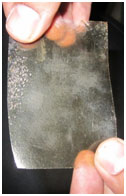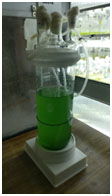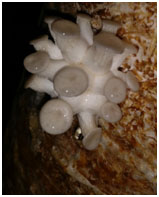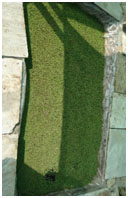Department of Microbiology
| Profile |
Small components are the most vital and potent parts of any system and so are microorganisms for the planet earth. The University started the first ever M.Sc. Microbiology program of Rajasthan in 1993. The Department of Microbiology (DoM) aims to quench the curiosity about life of organisms invisible to the naked eye. Knowledge about this microcosmos shall impart deeper understanding of the life as a whole. It answers how life is sustained (evolution), whether there is life on other planets (exobiology), how do the microorganisms live (cell biology, physiology and genetics), how many different types of microorganisms are there (biodiversity), what is their role, how do they interact with other beings and what are the extremes of their life (biogeochemical cycles-ecology) and whether man can utilize them for his benefit and for the continued existence of life on earth comprising fields of biotechnology, industrial, agricultural, environmental, medical, food, water and air microbiology. With a motto “unveil the hidden strength”, the faculty tries unveiling the hidden strength of the students and that of the invisible friends.     The DoM was recognised as Satellite Centre for Microalgal Biodiversity in Arid Zones of Rajasthan(SCMBAZR) for 1999-2002 by the Department of Biotechnology, Government of India and as Prosthecate Bacteria & Micrococcus Centre (ProMiC) for 2000-2012 by the Ministry of Environment & Forests, Government of India. Algae Biofuel & Biomolecules Centre is the first and only interdisciplinary research Centre of the University being run under the aegis of the DoMsince 3.3.2011. It has collaborations from the faculty members of the Departments of Environmental Science, Food Science & Nutrition, Economics and Management. It has completed one MDS University coordinated research project in collaboration with Central University of Rajasthan (~Rs. 45 lakh) on developing algal cultivation systems and is running a project funded by the Parenteral Drug Association India Chapter (Rs. 50 lakh) for the development of moist wound care material. Its research focus on desert microorganisms earned the faculty inclusion in Earth Microbiome Project and subsequent authorship contribution for an article on microbial diversity in the world’s most prestigious scientific journal “Nature”. The faculty collaborated in developing a mist based cultivation system for algae with the University of Georgia Athens USA, for which it has been awarded a US patent. For algae cultivation, it has worked on plant hormone based medium to stimulate growth of algae and poultry litter extract and carpet industry wastewater as media as replacements of fertilizers. The faculty successfully developed biopolymer based moist wound care material and presented a detailed protocol on evaluation of such material. For the first time it proposed and used an interactive biosorption process for anion (fluoride) removal. The DoM has also been the seat for deciphering- mechanisms of resistance of green algae to fluoride, quicker healing of wounds by ROS scavenging and triggering of desiccation tolerance by physical absence of water and not by osmotic water potential. The Department has raised ~Rs. 75 lakh from Professional faculty fund fee, Rs. 51.9 lakh from SFS courses, Rs. 186.06 lakh for research projects as extramural funds. It has the unique distinction of leading a bi-institutional collaborative project, be a part of a multi-institutional collaborative research project and the only department that earned grants for research from industrial association.Total 585 alumni have passed from the Department of Microbiology of which it holds record of 88 alumni who qualified national level test. For placement record of the department one can visit: https://www.mdsuajmer.ac.in/alumnilist/microbiology_placement.pdf Preparatory Lab: Serological incubator, Refrigerator, Deepfreez, Millipore water system for HPLC grade water, RO Unit, Distillation unit, Balances, Waterbath, To and Fro shaker waterbath, Oven, Benches for sample drying and material preparation, Sieve shaker, Microwave oven (donated by Prof. Bhatnagar) Placement: Microbiology Placement List |
Ajmer
Rajasthan 305009
Phone: 0145 278 7056
